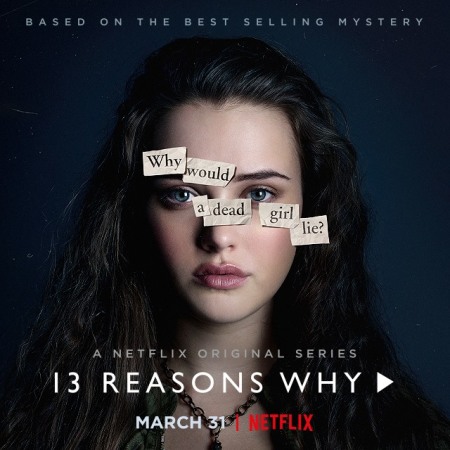'13 Reasons Why' Romanticizes Suicide, Christian Leaders Warn

A popular television series that showcases the story of a teenager who dies by suicide is troubling many people, as schools and Christian leaders alike warn parents about its graphic themes, urging them to not let their children see it.
The Netflix series "13 Reasons Why" is based off of the young adult novel of the same name by Jay Asher and was executive produced by Selena Gomez. Each installment follows audio recordings left by a 17-year-old named Hannah Baker for her peers articulating the reasons why she chose to kill herself.
Writing on his website Thursday, Russell Moore, president of the Ethics & Religious Liberty Commission of the Southern Baptist Convention, said he believed the series could tempt teens to attempt suicide because of the way it's portrayed as a solution to problems.
"What concerns me about the show is that the central conceit of the series feeds one of the drivers of teenage suicide, and that is the sense of suicide as storyline," Moore said.
"Many depressed teenagers that I've talked to over the years, and others with suicidal tendencies, don't actually want to be dead as much as they want to end one story and start another. In many cases, the suicide becomes, in the imagination, the way to resolve storylines that one sees no other way to resolve."
The episodes also reportedly contain instances of rape and sexual assault, underage drinking, driving under the influence, body shaming, and an explicit scene showing the teenager's suicide.
Julia Jefress Sadler, who is the girls ministry director at First Baptist Church in Dallas, Texas, noted in an op-ed piece in CP Friday that when she heard about the show she was ready to criticize it for its dark thematic content, but was not prepared for its "overwhelming accuracy."
The main issue of this series is actually not suicide, she argued, but the victim mentality it furthers, which is different from being a victim of an injustice.
"Victim mentality is letting other people rule your life or, in Hannah Baker's case, letting other people ruin your life," Sadler noted.
Sadler once counseled a suicidal 20-year-old girl who told her that she wanted to kill herself because she wanted her father to know how badly he hurt her when he sexually abused her.
"That is the suicidal delusion that many teenagers and adults believe — that because of what has happened in their life, their life is over."
While the program does convey that suicide has no singular cause, no advice or help is offered for young people who might be struggling.
The National Association of School Psychologists is also concerned, saying in a statement on its website that youth who have "any degree of suicidal ideation" should not watch the series.
"Its powerful storytelling may lead impressionable viewers to romanticize the choices made by the characters and/or develop revenge fantasies. They may easily identify with the experiences portrayed and recognize both the intentional and unintentional effects on the central character," the NASP said.
"Research shows that exposure to another person's suicide, or to graphic or sensationalized accounts of death, can be one of the many risk factors that youth struggling with mental health conditions cite as a reason they contemplate or attempt suicide," the statement read.
Around the country public school systems are sending letters to parents urging them to shield their children from the series, particularly if they struggle with depression.
Jill Wilson, a mother of three boys ages 13, 11, and 6, all of whom attend Fairfax County public schools in Virginia, told The Christian Post in an interview that although she hadn't watched the series she had read about its graphic content and knew she didn't want her children to be exposed to it.
"I was relieved and thankful when I received an email from our school system warning parents about this series, because this message will reach a wide audience and provide a useful resource for busy parents to make an informed decision about this series," she said.
"Parenting in the digital age can be scary and hard, and parents are looking for help navigating all the media in their kids' environment."





















